Brendan Rodgers: Swansea model can be a Celtic success
- Published
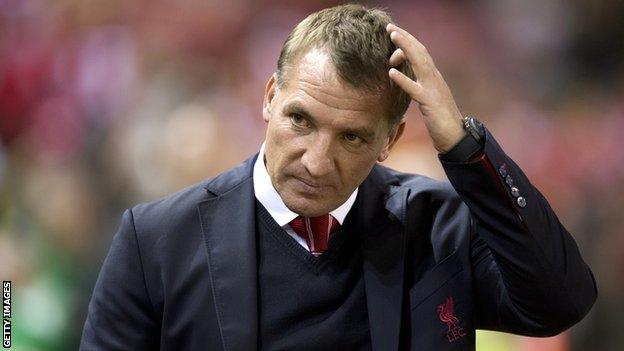
Rodgers will begin his new Celtic career with Champions League qualifiers in mid-July
New Celtic boss Brendan Rodgers has painstakingly applied himself to the process of becoming a leading manager.
He was only 20 when a long-standing knee injury ended his playing career and he spent the next 15 years working up the ranks of youth coaching.
Elements of the job need to be learned, but Rodgers could always rely on an instinctive understanding of how to handle different personalities and manage people. That empathy and an enthusiasm for a certain style of technically advanced, passing football, immediately endeared the Northern Irishman to Tommy Burns.
Their paths crossed when Burns took charge of Reading in 1998 and Rodgers and the former Celtic manager became firm friends.
Family connections
Their friendship endured, not least because Rodgers has an affinity with Celtic because so many of his family support the club.
Rodgers grew up following Sheffield Wednesday but has a keen sense of his background and his roots. He has spoken of his childhood and recognising even as a boy the efforts of his father, Malachy, to earn enough money to support the family, of which Brendan was the eldest of five brothers.
Rodgers has become a self-made man, building a property portfolio with his former wife that makes him independently wealthy outside the money he earns in football.
When he took his first senior role in management, at Watford in 2008, a framed £5 note sat on his desk. It was a limited edition, carrying the face of George Best to commemorate the former Manchester United great, and a reminder to Rodgers of the country he came from and the worth of pursuing his ambitions in the game.
One of the first text messages he received after joining Watford was from Roy Keane, then in charge of Sunderland and who did his coaching badges with Rodgers, which simply said: "welcome to hell".
Success with Swansea
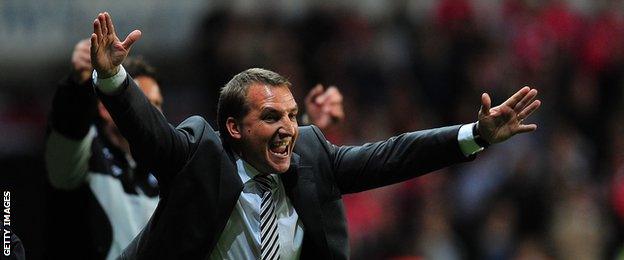
Rodgers took Swansea into the Premier League via the play-offs in 2011
Rodgers' career has contained moments of mixed fortune, but he has tended to absorb the lessons.
As well as travelling abroad during his younger years as a coach, he has also learned languages, in particular Spanish, to broaden his horizons and push his intellectual development.
At Reading, he attempted to implement his preferred style of football - possession, pressing, passing - on a team that was not adequately equipped to play that way.
He has seldom made the same mistake since. At Liverpool, he was prepared to try various different formations and styles, often switching during games, to deliver the best performances from his players.
'Rodgers has to not pretend to reinvent football as he did at Liverpool', external
For Celtic, the most comparable spell has been his time at Swansea, an aspirational club, with a well-defined budget, and a sense of momentum.
Rodgers embraced the club's past, but also redefined its horizons, taking them into the Premier League and then to 11th place.
He signed shrewdly, seeking talented players who had not been coveted by larger clubs or were not yet ready for that stage, moulding them into a side that played attractive, engaging and artful football.
Vision for Celtic
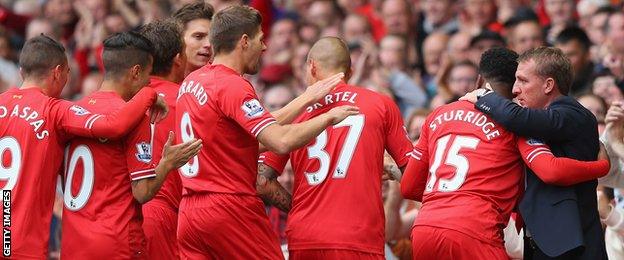
Under Rodgers, Liverpool fell two points short of the title in season 2013-2014
There has always been a sense of substance to Rodgers' career, since he never had a reputation as a top-class player to be indulged. He earned every step along the way, and that sense of worth, rather than entitlement, underpinned his move to Liverpool.
The limelight was harsh at Anfield, though, beginning with the documentary Being: Liverpool that would have benefited - not merely from Rodgers' perspective - from a sharper edit.
Rodgers has at times since then been caricatured in the media. The occasional bouts of scorn are unfair, though, when his handling of the brash, immature, but talented Raheem Sterling is recalled. With a mixture of discipline and encouragement, Rodgers played a critical role in delivering the player's potential.
His achievement in almost guiding Liverpool to the title in 2014 has occasionally been portrayed as the consequence of having Daniel Sturridge, Luis Suarez and Sterling to hand, but plenty managers fall much shorter with talented squads.
Rodgers showed the innovation and clarity of mind to make the most of his resources that season.
He might latterly have bemoaned the presence of a transfer committee that seemed to make signings based on compromise, though, and also the increased profile - one newspaper published pictures of him proposing to his fiancée in New York.
It has been evident at times in the English media that his weight loss, change in appearance and private life have somehow been connected to his work as a football manager. That is absurd, but also a heavy bout of double standards when Jose Mourinho or Quique Sanchez Flores are fawned over for their air of urbanity.
Rodgers is a talented coach and manager of individuals. He will seek to implement a vision at Celtic Park, and be respectful of the club's sense of itself. That alone should make the partnership worthwhile.
- Published20 May 2016
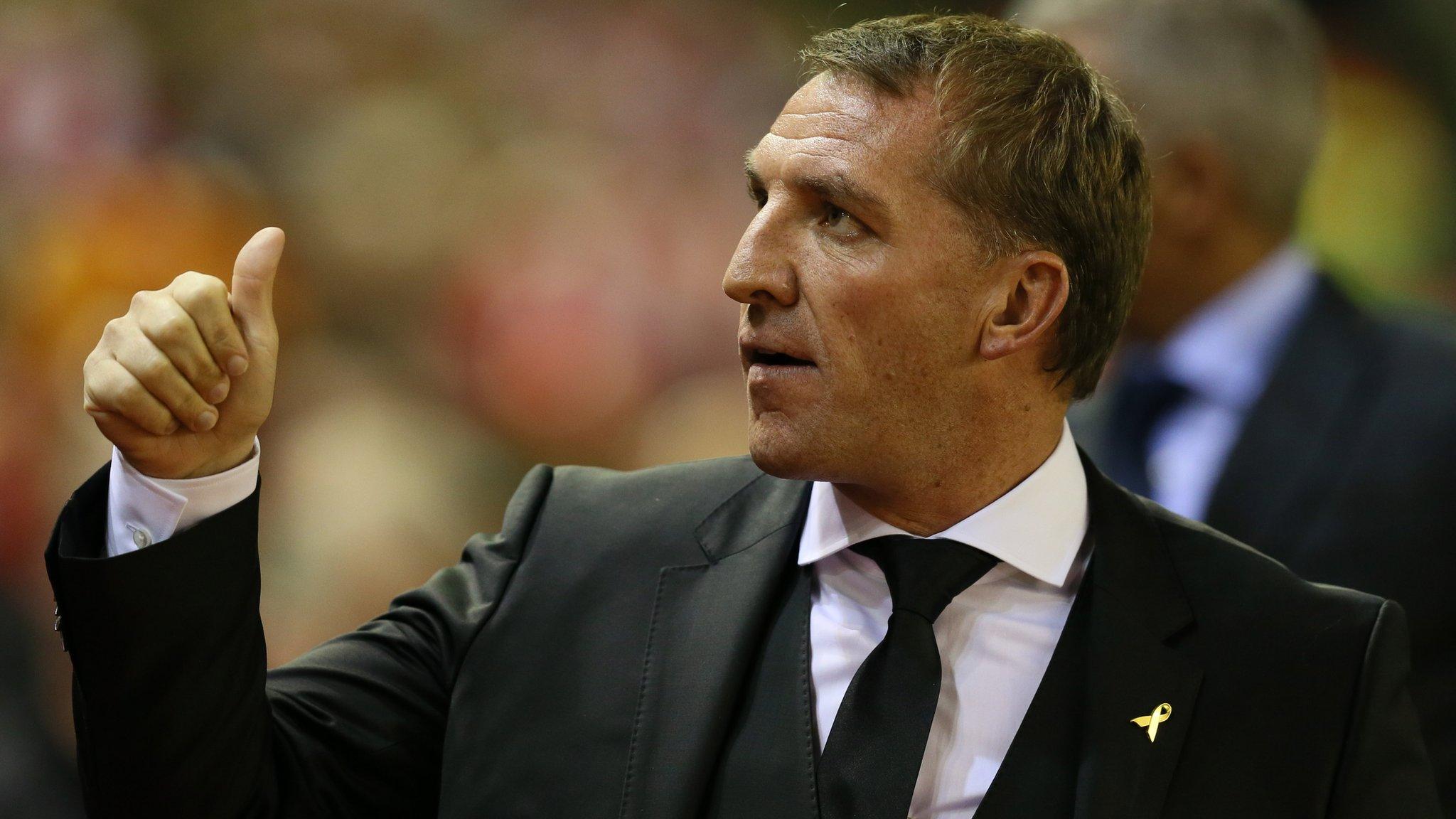
- Published19 May 2016
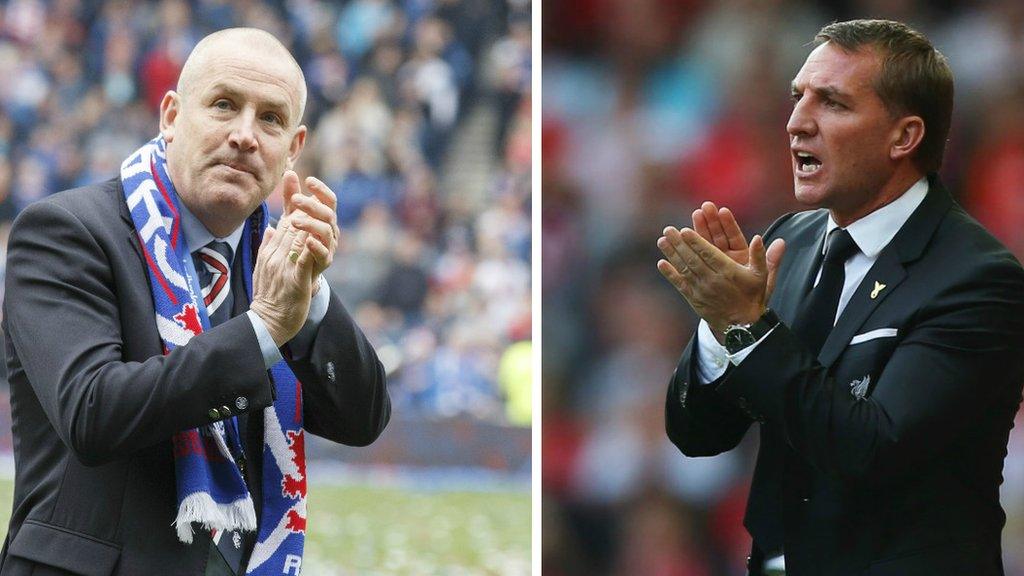
- Published13 May 2016

- Published20 June 2016

- Published7 June 2019
